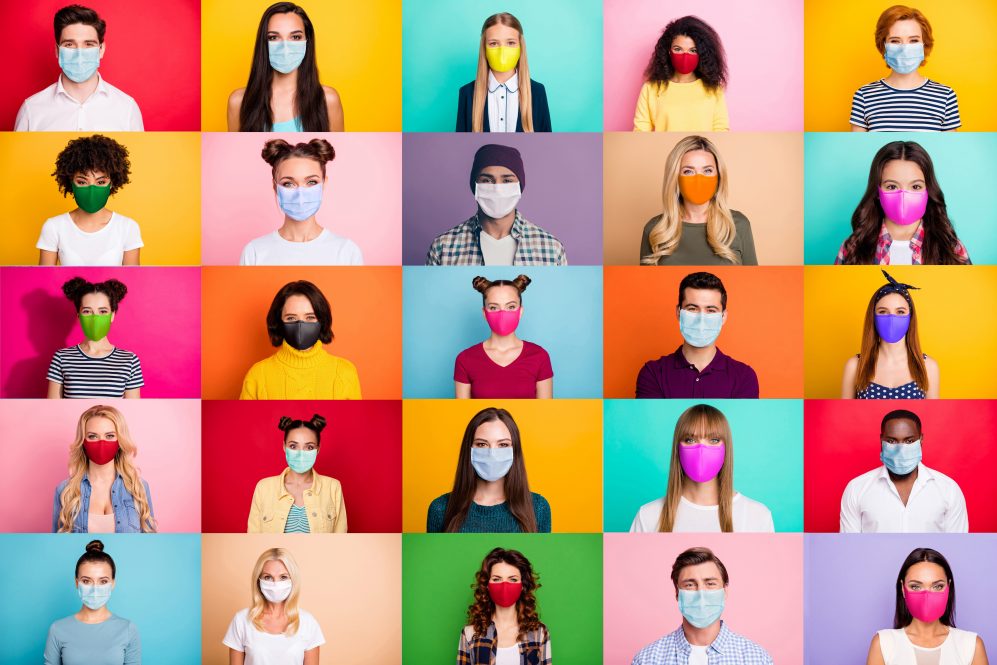The COVID-19 pandemic that seized the world last year created an unprecedented global health crisis. The pandemic was accompanied by an “infodemic” in which misinformation about the virus and, more recently, COVID-19 vaccines, have run rampant on social media.
Given this dual challenge of the pandemic and misinformation about it, the UConn Center for mHealth and Social Media is hosting its fifth annual conference on the topic of COVID-19 misinformation. The entirely virtual conference will take place on May 13-14.
One of the shining stars of the pandemic has been the scientists who have done a fantastic job communicating with the public via media and social media — Sherry Pagoto
“Through this conference, we hope to put forth an agenda on how we can utilize social media to study and solve public health problems,” says Sherry Pagoto, Center director and professor in the College of Agriculture, Health and Natural Resources.
The conference will include talks and panels with experts from around the world, as well as faculty from UConn and UConn Health. Hot topics like online COVID-19 patient communities, science communication, and vaccine hesitancy make up the bulk of the program.
The conference highlights several social media projects and their creators that are leveraging the powerful communication tool to support accurate scientific information. The first day features a keynote address by Allison Buttenheim, an associate professor of nursing and health policy at the Penn Nursing and Perelman School of Medicine. Buttenheim is part of a group of women researchers who created the “Dear Pandemic” Facebook page, which has over 68,000 followers. The page hosts a Q&A-style feed to answer people’s burning questions about COVID-19 with scientific evidence in an engaging, accessible format.
“Dear Pandemic” is one of many projects that helps address the emotional and physical effects caused by COVID-19. Another speaker, Natalie Lambert, who is director of the COVID-19 Health Lab at Indiana University, will discuss the COVID-19 Survivor Corps Facebook Group which has ballooned to over 162,000 members. Many of the site’s users are experiencing long-haul COVID-19 symptoms and use the page to seek support and discuss their experiences with this still-ill-understood malady. The group has now partnered with researchers, highlighting the great opportunity researchers have to use social media to connect with online patient communities.
“One of the shining stars of the pandemic has been the scientists who have done a fantastic job communicating with the public via media and social media,” says Pagoto.
A panel on science communication will tackle major issues such as the mental health crisis caused by the pandemic, as well as the pre-existing deep health disparities that have been exacerbated by the current situation. Speakers include Dr. Jessica “Jessi” Gold, a psychiatrist and assistant professor at Washington University School of Medicine who has published prolifically in outlets including Time, Newsweek, Vox, and InStyle, and Monica Wang, the associate director of narrative at the Boston University Center for Antiracist Research founded by Ibram Kendi. Eleanor Murray will also join the panel. Murray is an assistant professor of epidemiology at Boston University School of Public Health, and she has amassed 70,000 Twitter followers as @EpiEllie, a COVID-19 social media influencer sharing science-based information regarding the virus.
The conference is also tackling a major issue affecting the world’s ability to vaccinate as many citizens as possible: COVID-19 vaccine hesitancy. Dr. Eugenia South, an African American physician who wrote an op-ed for NBC, will discuss her initial skepticism of the vaccine and what made her change her mind. The panel will also include UConn professor of nursing Natalie Shook, and Jasmine Tiro, associate professor of behavioral and communication sciences at the University of Texas Southwestern Medical Center, both experts in vaccine hesitancy.
The COVID-19 pandemic has widened health inequities for communities of color who have been disproportionately impacted. Wizdom Powell, UConn associate professor of psychiatry and director of the UConn Health Disparities Institute, will deliver a keynote on this topic.
Pagoto says it was a priority to assemble a demographically and disciplinarily diverse array of speakers. Attendees will hear from epidemiologists, psychologists, physicians, health communication experts, geographers, philosophers, social scientists, and computer scientists. Speakers will hail from the US, Canada, Europe, Asia, and South America.
When the conference went online unexpectedly last year, there was a surprising upside — people from all over the world attended.
“It’s been a really rich experience to open the doors of the conference to people around the nation and world who might not have the means to travel to UConn for this conference,” says Pagoto, who was on a team of UConn researchers and staff that developed the University’s reopening plans in the fall of 2020.
Pagoto hopes attendees will find collaborators from fields and regions of the world they may have never considered before. The Center intends to continue to hold the conference online to create a global conversation about a public health issue that affects the entire planet.
“The pandemic has been an ‘all-hands-on-deck’ moment for science,” says Pagoto. “To solve the myriad problems [the pandemic] has created for society, we need diverse perspectives at the table so we can think about it in new ways and come up with new solutions and new collaborations.”
Online registration is open to all. Students and postdoctoral researchers can register at no cost. Fee waivers are also available to scholars who do not have the funds to attend.
The UConn Center for mHealth and Social Media is part of the Institute for Collaboration of Health, Intervention, and Policy (InCHIP), a multidisciplinary research institute dedicated to the creation and dissemination of new scientific knowledge and theoretical frameworks in the areas of health behavior and health behavior change.



